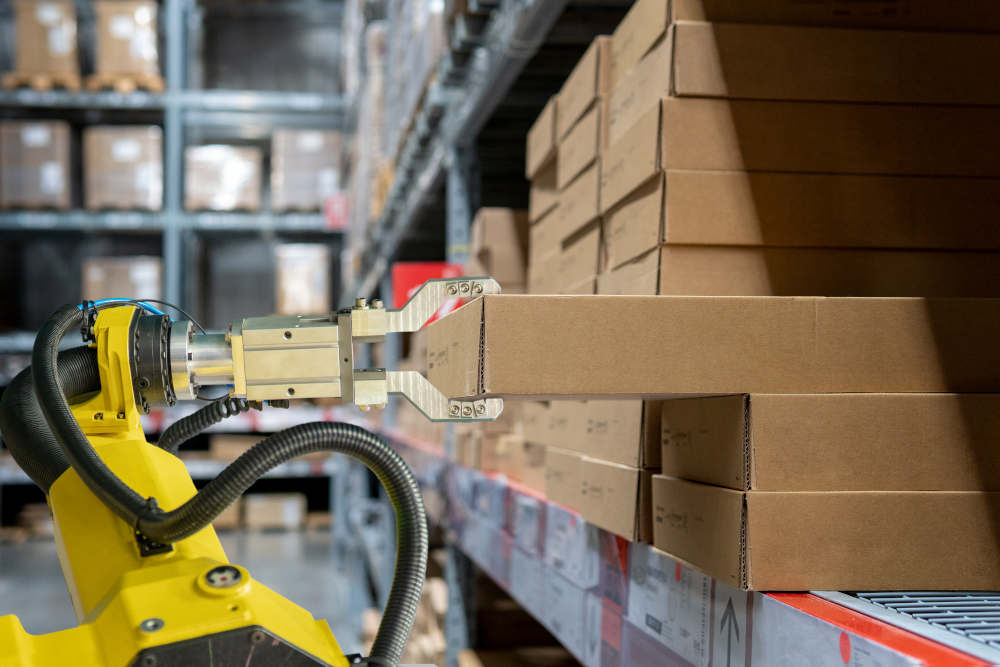What the Autumn Budget means for the logistics sector
04 Nov 24
Read more →

While individuals have welcomed the causal daily convenience of these digital innovations – countless businesses are finding the incredible benefits of AI irresistible. The logistics sector is already making headway to becoming an industry driven by automation.
In essence, AI refers to technology that can mimic, automate, replicate human thinking and manage data-driven actions more effectively than humans do. Two years ago, it took a team of research and analyst professionals to fully process generated data. Currently, Artificial Intelligence has allowed businesses to optimise and automate these processes – achieving pinpoint accuracy at excellent value by applying data-driven decision making.
This is a mere sample of the digital revolution occurring within the sector. With automation predicted to progress global logistics on an unprecedented level, analysts anticipate that the industry will grow $8 billion by 2022. Companies that fail to adapt run the risk of being rendered obsolete by their more pioneering competitors.

As e-commerce expands exponentially – Amazon has emerged as the largest internet company, and one of the world’s most valuable businesses. To keep up with this soaring demand, the retailer’s warehouses operate with a seamless amalgamation of humans and machinery.
While the robots utilised by Amazon are a far cry from C3PO or R2-D2 – they are instead, highly utilitarian devices that range from small drive units to robotic arms, designed to assist warehouse workers. These mechanical helpers allow the company to drive faster shipping times, maximise their inventory and lower costs.
Despite the astounding innovations implemented by Jeff Bezos’ online retailer – the British supermarket chain, Ocado, are perhaps at the forefront of the transition to warehouse automation. With each storehouse fitted with a colossal grid, populated by more than a thousand robots – all of which are tasked to sort through groceries 24 hours a day.
Arguably cheaper and more efficient than humans – these metal marvels are able to sort through 65,000 orders every week. While they lack intelligence individually and can’t make decisions for themselves – their actions are deciphered by a central computer, which means when picking a customer’s 50-item Ocado shop – a group of robots will band together and gather an order within minutes.
In regards to haulage, Artificial Intelligence can automatically analyse data regarding vehicles, and warn of potential breakdowns. Such systems can accumulate information about failures, draw up statistics and, based on this statistical data, schedule repairs. This may become more important if predictions about the growing technician shortage are true.
Having such vehicle diagnostics will also allow businesses to monitor fuel consumption. This will enable companies to operate sustainably and efficiently.

Although impressive strides have been made by Tesla in regards to driverless technology – Elon Musk’s optimism of having fully autonomous vehicles ready by the end of 2020, is perhaps somewhat unfounded. While driverless trucks may still be a few years away, high-tech driving assistance is coming to the logistics industry to increase safety and competence.
The road haulage sector is set for big changes with highway autopilot, lane-assist and assisted braking features, predicted to lead the way to true autonomy. However, with an abundance of entries and exits on our motorways, paired with some of the busiest roads in Europe – it’s plain to see how the UK presents several challenges for the future self-driving vehicles.
One doesn’t always have to look to the future to see the ways in which AI is already benefitting our industry. The technology can help with intelligent route optimisation, allowing businesses real time access to the optimal alternative routes for shipments.
Using 5 different algorithms depending on the particular circumstances, TrackTrans’ routing is very flexible, allowing anything from route optimisation of a single driver, to routing and scheduling all of your consignments across your entire fleet at once. Our solution is fast enough to be used in real-time and allows you to add constraints of your choosing – such as delivery times, weights and traffic – to give an accurate plan customised to your operation.
To get a feel for TrackTrans – try out our free demo today!
See how TrackTrans can be tailored to your business with no obligation. Simply complete the form and a member of our sales team will contact your directly.